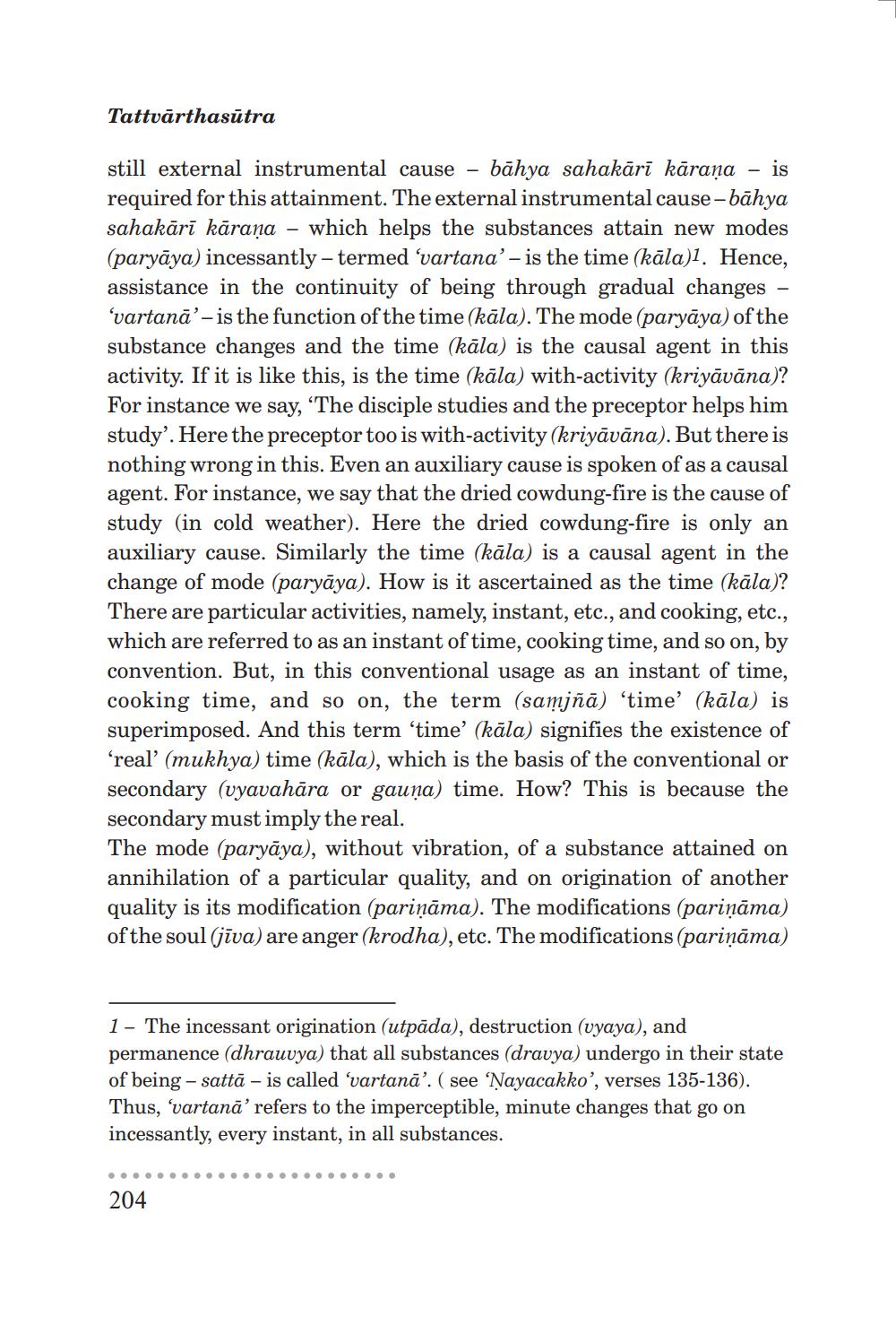________________
Tattvārthasūtra
still external instrumental cause - bāhya sahakārī kāraņa - is required for this attainment. The external instrumental cause -bāhya sahakārī kāraņa – which helps the substances attain new modes (paryāya) incessantly - termed ‘vartana'- is the time (kāla)1. Hence, assistance in the continuity of being through gradual changes - ‘vartanā’- is the function of the time (kāla). The mode (paryāya) of the substance changes and the time (kāla) is the causal agent in this activity. If it is like this, is the time (kāla) with-activity (kriyāvāna)? For instance we say, 'The disciple studies and the preceptor helps him study'. Here the preceptor too is with-activity (kriyāvāna). But there is nothing wrong in this. Even an auxiliary cause is spoken of as a causal agent. For instance, we say that the dried cowdung-fire is the cause of study (in cold weather). Here the dried cowdung-fire is only an auxiliary cause. Similarly the time (kāla) is a causal agent in the change of mode (paryāya). How is it ascertained as the time (kāla)? There are particular activities, namely, instant, etc., and cooking, etc., which are referred to as an instant of time, cooking time, and so on, by convention. But, in this conventional usage as an instant of time, cooking time, and so on, the term (samjñā) time' (kāla) is superimposed. And this term 'time' (kāla) signifies the existence of ‘real' (mukhya) time (kāla), which is the basis of the conventional or secondary (vyavahāra or gauņa) time. How? This is because the secondary must imply the real. The mode (paryāya), without vibration, of a substance attained on annihilation of a particular quality, and on origination of another quality is its modification (parināma). The modifications (parināma) of the soul (jīva) are anger (krodha), etc. The modifications (pariņāma)
1 - The incessant origination (utpāda), destruction (vyaya), and permanence (dhrauvya) that all substances (dravya) undergo in their state of being - sattā - is called 'vartanā'. (see 'Nayacakko', verses 135-136). Thus, ‘vartanā' refers to the imperceptible, minute changes that go on incessantly, every instant, in all substances.
..
.
.
.
.
.
.
.
.
.
.
.
.
.
.
.
.
.
.
.
.
.
204




